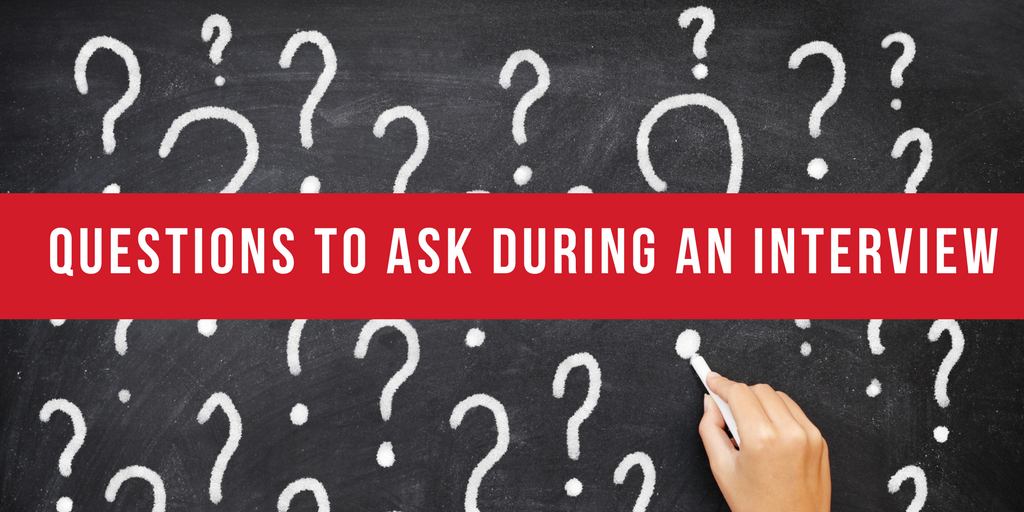;)
Interviewees: What Questions To Ask Your Potential Employer
| June 27, 2017| InterviewsYour interview is going really well –you’re nailing the questions they throw at you, your qualifications align with the position, and the company seems like a good fit. The end of the interview then approaches and they ask, “Do you have any questions?”
This is where people tend to stumble. Even if you rocked that interview, not asking any questions can leave a bad impression, and may even cause a hiring manager to pass you up in favor of another equally qualified candidate. Don’t let this question blindside you. If this is an area where you struggle, prepare a few questions ahead of time so that you’re not caught off guard because this question WILL come up.
Remember, an interview is not meant to be an interrogation. While it is a way for a potential employer to get to know you, and understand how the skills you possess will benefit their organization, this is also your chance to gain an in-depth feel about the company. After all, you’ll be spending a considerable amount of time there, so get to know as much about the company as you can while still maintaining a sense of professionalism. Passing up the chance to ask employers about their company, the position, or even themselves makes you seem uninterested in the opportunity.
If you’re having trouble coming up with some questions, here’s a good starting point:
“What are the primary expectations of the job?”
While it’s safe to assume that during the interview this will be covered, if there are any additional questions that you have about the most important aspects of this role, now is the time to ask. It’s better to be informed rather than blindsided at a later date.
“What are the most immediate projects that need to be addressed?”
Asking this question shows initiative and forethought. It also gives you an idea of what to expect when you are initially hired for this role.
“Can you describe what a typical day looks like?”
This question enables you to gain a better understanding of the job and help you assess if it will be a good fit for your lifestyle. Remember: an interview is just as much you learning about a company as it is them learning about you.
“Will I be working with a team? What can you tell me about them?”
This is another good way to figure out what your day-to-day will look like. If your position involves big projects or special tasks, it will be beneficial to know if there will be other people working alongside you.
“How would you describe your company culture?”
Does your company offer free lunch? Summer Fridays? Do all of the employees get together for a weekly karaoke night? While it’s not necessarily appropriate to ask “Can I leave early on Fridays?”, asking about company culture might just answer that. It’s important for you to find a place where you feel comfortable and can fit in. Catching a glimpse of a company’s culture will do just that.
“Do you have any additional questions about my qualifications?”
Now is your chance to reassure potential employers that you’ve got the skills needed for this job and reaffirm that you are the best candidate for the position.
“What are the next steps in the interview process?”
This is mainly for your benefit. If the employer is looking to fill this position by next week, this gives you a timeline on when you should expect to hear back from them. And if over a week passes, having this knowledge enables you to send them a quick email asking about the job to let them know you’re still interested and looking forward to hearing their decision. But don’t forget to send a follow-up thank you soon after the interview, particularly if you’re interested in the position.
When asking questions during an interview make sure they are the right questions. Avoid questions like, “What does your company do?” Companies expect that you have researched what they are about before you interview with them. Not knowing will make you seem unprepared. You can ask for clarity on the scope of work they perform, but you should, at the very least, have basic knowledge of the company and industry. Here are some other questions to definitely avoid:
“If I get this job, can I take time off for vacation?”
You can discuss vacation opportunities once you are offered a job.
“Can I change my schedule if I get the job?”
If you have to figure out the logistics of your schedule, don’t mention it now. This is also something to discuss at a later date if the employer decides to offer you the job.
“Did I get the job?”
Don’t be impatient. They will let you know.
Asking an employer questions is an essential part of a successful job interview, but asking the right ones will leave a positive lasting impression. If this is an area in which you struggle, take some time before each interview to come up with a handful of prepared questions tailored to the company and position you are applying to.
Our professional recruiters can help match you with positions that are the right fit and guide you on proper interview etiquette. Together we’ll help you rock that interview and land the job you’ve been waiting for.

